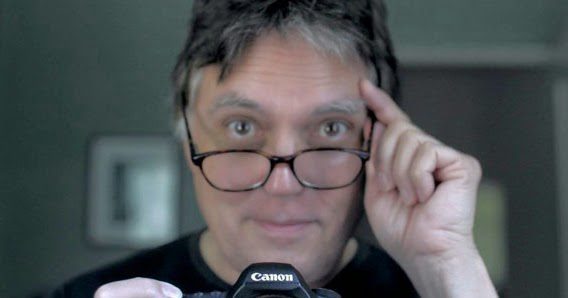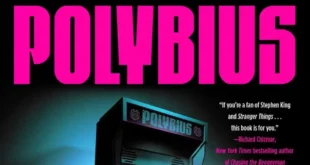William Malone is a true Master of Horror and I am a personal fan of his creations. The style, creativity and conceptual combination of his work is pure genius. I was ecstatic when William agreed to do an interview with us, and I’m sure his fans will be eager to delve into the workings of this mastermind.
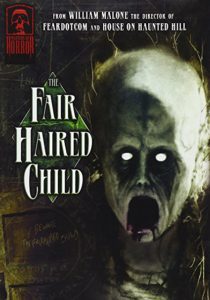
Pophorror: Hi, William! Thank you so much for doing the interview with us. You’re known as a True Master of Horror amongst those who admire your work. What inspired you to become a writer and director, and where do you draw your inspiration from?
William Malone: Thank you for your very kind comment. First of all, I just love film. I can watch grass grow if it’s shot in CinemaScope and on film. I think what prompted me to become a director/writer was my experience when I worked at Don Post Studios. We used to get a lot of directors coming into DPS to get creatures and effects made for films.
When I talked to them, it became clear to me what was going on. Most of these guys making horror films back then thought they were slumming. With the exception of a handful of directors like John Carpenter, Tobe Hooper and a couple others, most hated horror and only did it as a way to make a buck. This made me very frustrated. I remember thinking I can do a better job than these guys (laughs). So one day, I quit my job, took the money that I had saved and made a little horror picture called Scared to Death. No one was more surprised than me when it reached number 16 on the charts.
But to answer your question: Seeing films like The Haunting, Frankenstein (1931), Creature from the Black Lagoon and some of the wonderful silents like Faust and Nosferatu really fired up my imagination. I just wanted to try to do that. My inspiration really comes from a lot of sources, such as a fine painting or a book. Sometimes, I’ll just sit and listen to a really good piece of classical music and images will just drop in on me. I’m reminded of what John Lennon said when asked about his songwriting. He said, ‘John Lennon writes the mediocre songs and good songs come from someplace else.’

Pophorror: Your work echoes German expressionism, steampunk, Universal horror, Giallo/slasher elements and obscure variations of classical fairy tales. What inspired you to combine these concepts?
William Malone: I think that it’s difficult to pin these things down. Any filmmaker is the total of the events and things they’ve been exposed to, mostly at a young age. For me, it was the German Expressionists working in the 1920s and ’30s. Curt Siodmak, FW Murnau, Edgar Ulmer, Billy Wilder and later Gerd Oswald, who directed some of the coolest Outer Limits episodes. When I began making films, I wanted to combine that early German style with some of my other interests, which include a lot of old esoteric stuff, dusty books and things.
Pophorror: Are there any fiction writers or directors that inspire you?
William Malone: There are many. Writers like HG Wells, George Orwell, HP Lovecraft and oddly, I suppose, Charles Dickens. Mrs. Havisham and her rotting wedding cake made a huge impression on my young mind when I had to read Great Expectations in school. As far as directors, I have to say James Whale’s Frankenstein and Edgar Ulmer’s very subversive The Black Cat were big influences. In more modern times, Ridley Scott and Stanley Kubrick were very influential. Modern filmmakers also inspire me. I think Dark City and, more recently, It Follows, are terrific.
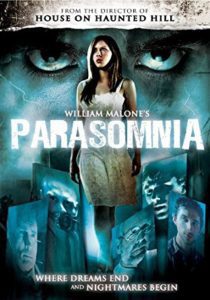
Pophorror: You’ve directed quite a few TV series and movies since 1975, with your most recents being House on Haunted Hill (1999), Feardotcom (2002), Masters of Horror: The Fair Haired Child (2006) and Parasomnia (2008). Where did you get your vision and concepts from when directing those amazing projects? What inspired you?
William Malone: I looked at a lot of art, both modern and old. I’m really a sap for a great painting or a cool, weird, old photo. I love pictures that are unintentionally creepy.
Pophorror: Do you prefer designing, working on special effects or directing? Which is more rewarding for you personally?
William Malone: They are both really rewarding in different ways when they work well. Filmmaking is, or course, a very social process. As a director, you spend most of your time being a psychiatrist and only a small time actually filmmaking. In the end, ultimately you’re always looking for approval from the audience. Writing and effects work are completely different. It’s very solitary. The beauty of effects work or building something is, when you’re done, you don’t really need anyone to tell you whether or not it’s good. The gratification is in the process and you can see for yourself if it’s good.
Pophorror: What has been your favorite project so far?
William Malone: It’s kind of a three way tie. My favorites of the things I’ve done are Parasomnia, Masters of Horror: Fair-Haired Child and my Tales from the Crypt episode (“Only Skin Deep”). My early films, like Creature and Scared to Death, I don’t really consider William Malone movies, as for me it was more like film school. I don’t really feel that I had control of the medium at that point.

Pophorror: Apart from acting and directing, you’ve produced a few of your films as well, like Scared to Death, Creature and Parasomnia. Do you find it more rewarding to be fully involved in projects on all levels, or sticking to one role such as producing or directing and so on?
William Malone: I don’t really enjoy producing. It goes against my nature. I’ve only ever done it out of self-preservation. Directing is a huge task. Your really should only do one job at a time. I’ve always been looking for a producer that would have my back. I’ve yet to find him or her.
Pophorror: Being a director also has its challenges, along with producing. Do you think it’s more challenging to get your projects funded and directed within the industry these days?
William Malone: Financing for feature films these days is nearly impossible. Piracy and the internet has destroyed the business. I feel really sorry for any young filmmakers trying to make their mark.
Pophorror: Do you feel that crowd funding is a gateway – like the internet – for filmmakers, meaning “anyone” can become a filmmaker, making it more difficult for those who are true visionaries like yourself?
William Malone: Crowd funding, when it first happened, was good. Too many people took advantage of the people giving their money. Now, it’s just a promotional tool. Many of the people doing it now already have funding and use it to say, ‘See, we got totally funded it two days.’ It’s a good way to fake out a distributor, although I suspect they’re catching on to that by now.

Pophorror: In regards to Thallium’s Box, which seemed to offer a unique approach to horror/fantasy, do you feel that an online presence as a writer or filmmaker increases your chances of getting funded, or is it due to sheer luck? Will we ever get the chance to see Thallium’s Box?
William Malone: I have no idea whether my internet presence has any meaning at all (laughs). I have plans to make it [Thallium’s Box] in 2018 with or without studio involvement. I love that project and I want to see it myself.
Pophorror: You’ve had a lot of well known, talented actors in your films, including the ever popular Jeffrey Combs. What qualities do you look for in an actor/actress? What techniques do you use to get the actors into character? Do you encourage method acting?
William Malone: I always look for actors who can adapt their performances and can change into the character. Jeff Combs is one of those actors. He always gives you something unexpected and wonderful. If an actor comes in and is “perfect” for the part, and then you ask them to do something different but they can only give you that one take on the character, I probably won’t use them. I would rather have an over the top actor because you can always pull them back. I’m always looking for as natural a performance as possible.
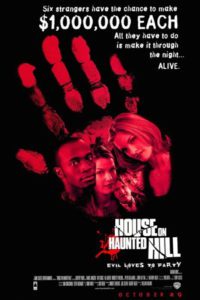
Pophorror: When creating projects, we know there are many challenges. What are the negative and positive parts of being a creator, from writing to special effects to directing to getting your vision across?
William Malone: The most important thing is to be specific with the people you’re dealing with. So many directors don’t know what they want until they see it. I’ve been guilty of that occasionally. Don’t expect the crew to give your film style. That’s up to you. The negative things are the difficult people you have to work with sometimes and the long hours. The positives are great highs from working with terrifically talented people and seeing you vision turned into reality. I think it was Orson Wells who said, ‘It’s biggest electric train set any boy ever had.’
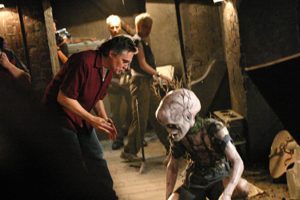
Pophorror: Do you have any advice for those aspiring writers and directors?
William Malone: As Ash said in Alien as his decapitated head lay in the floor: ‘You do have my sympathies.’ My only advice is to stop talking about it and make go something. ‘It’s time to share your dreams’ – Byron Volpe, Parasomnia.
Pophorror: What projects are you currently working on?
William Malone: I’m working on several scripts, mostly horror although one is a true crime story that is something like Fargo… I think. As I mentioned, I’m still planning on making Thallium’s Box soon.
I do want to thank you for your very kind interest in my work and I really want to thank all my fans and great supporters over the years. It really means a lot to me.
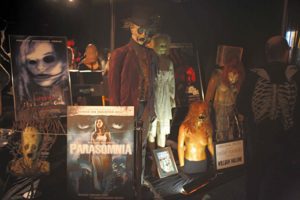
Stay tuned for more amazing work from this Master of Horror. I’m most definitely a fan and cannot wait to see what William Malone has for us next!
 PopHorror Let's Get Scared
PopHorror Let's Get Scared
